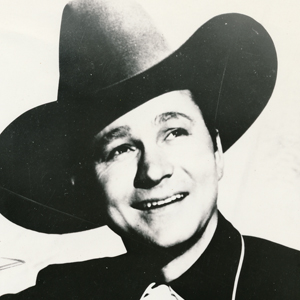
Induction Year: 1971
Birth Name: Woodward Maurice Ritter
Birth Date: 01-12-1905
Place of Birth: Panola County, Texas
Death Date: 01-02-1974
Place of Death: Nashville, Tennessee
"Dear John"
(written with Aubrey Gass)
| Hank Williams | 1951 | #8 country |
| Tex Ritter | 1952 |
| Warren Smith | 1957 |
| Skeets McDonald | 1962 |
| John Prine | 1999 |
"Headin' for the Rio Grande"
(written with Stanley Davis)
| Tex Ritter | 1936 |
| The Prairie Ramblers | 1938 |
"Here Was a Man"
(written with Johnny Bond)
| Johnny Cash | 1963 |
"High Wide and Handsome"
(written with Ted Choate)
| Tex Ritter | 1936 |
| The Prairie Ramblers | 1938 |
"I'm Gonna Leave You Like I Found You"
(written with Frank Harford)
| Tex Ritter | 1946 |
"I'm Wastin' My Tears on You"
(written with Frank Harford)
| Tex Ritter | 1944 | #1 country, #11 pop |
"I've Done the Best I Could"
(written with Frank Harford)
| Tex Ritter | 1943 |
"Long Time Gone"
(written with Frank Harford)
| Tex Ritter | 1946 | #5 country |
| The Everly Brothers | 1958 |
| The Flatlanders | 1972 |
| Sweethearts of the Rodeo | 1993 |
"Never Mind My Tears"
(written with Joe Allison)
| Tex Ritter | 1948 |
"Sing Cowboy Sing"
(written with Ted Choate)
| Tex Ritter | 1937 |
| W. Lee O'Daniel | 1937 |
"The Pony Express"
| Tex Ritter | 1948 |
"There's a Gold Star in Her Window"
(written with Frank Harford)
| Tex Ritter | 1944 |
"When You Leave, Don't Slam the Door"
(written with Joe Allison)
| Tex Ritter | 1946 | #3 country |
"You Will Have to Pay"
(written with Sarah Jane Cooper, Bonnie Dodd)
| Tex Ritter | 1945 | #1 country |
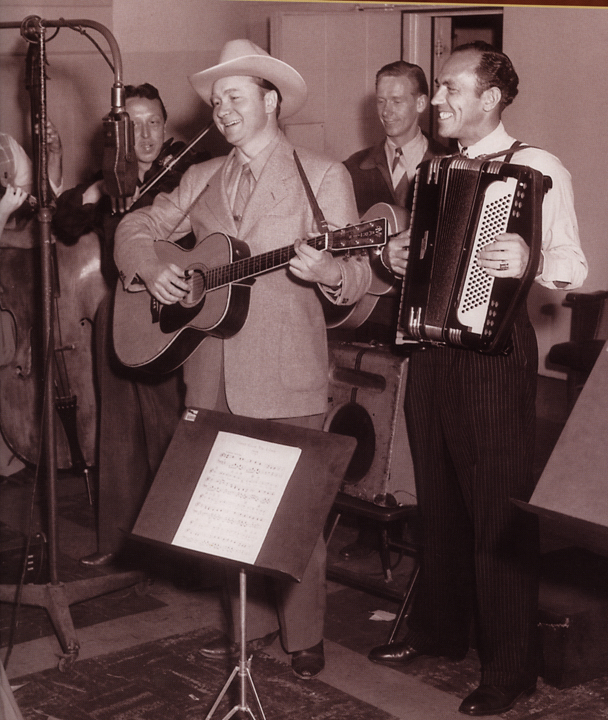 Tex Ritter performing in a radio studio, circa 1940s.
Tex Ritter performing in a radio studio, circa 1940s.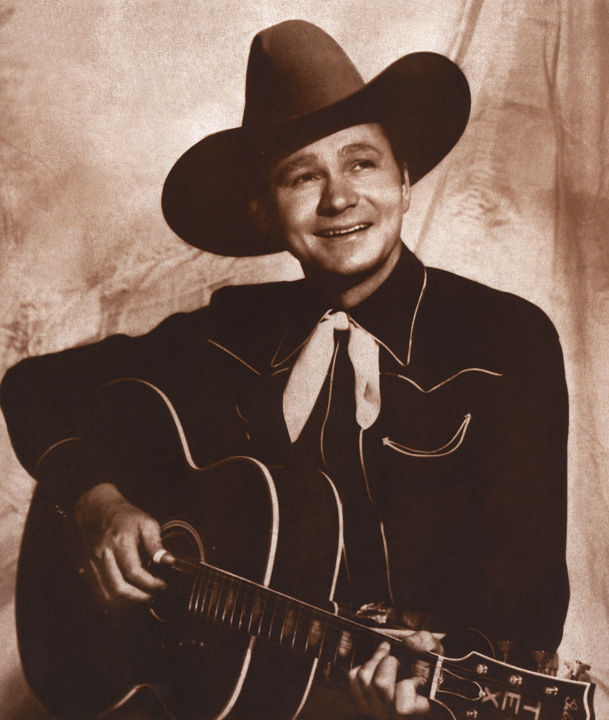 Promotional photo of Tex Ritter, circa 1930s.
Promotional photo of Tex Ritter, circa 1930s.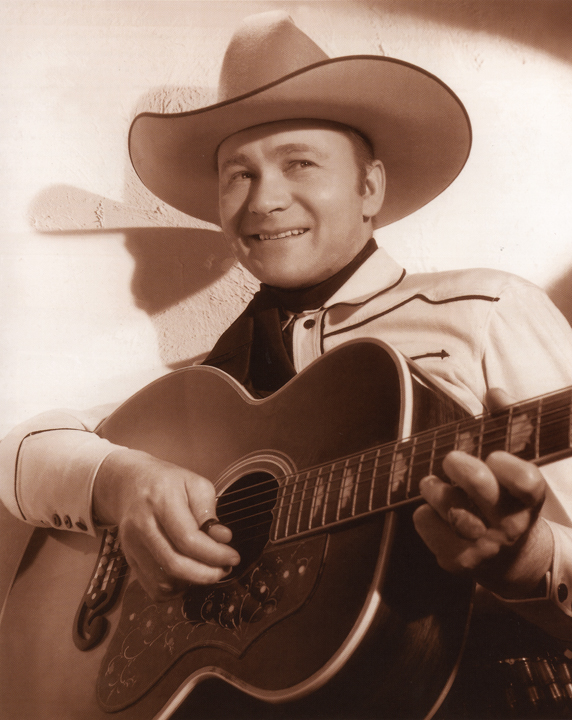 1930s Tex Ritter promotional photo.
1930s Tex Ritter promotional photo.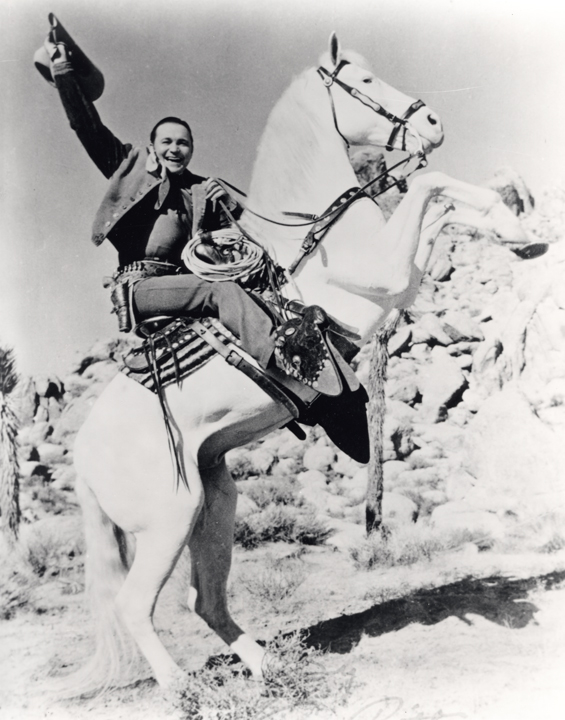 Promotional photo of Tex Ritter on horseback, circa 1930s.
Promotional photo of Tex Ritter on horseback, circa 1930s.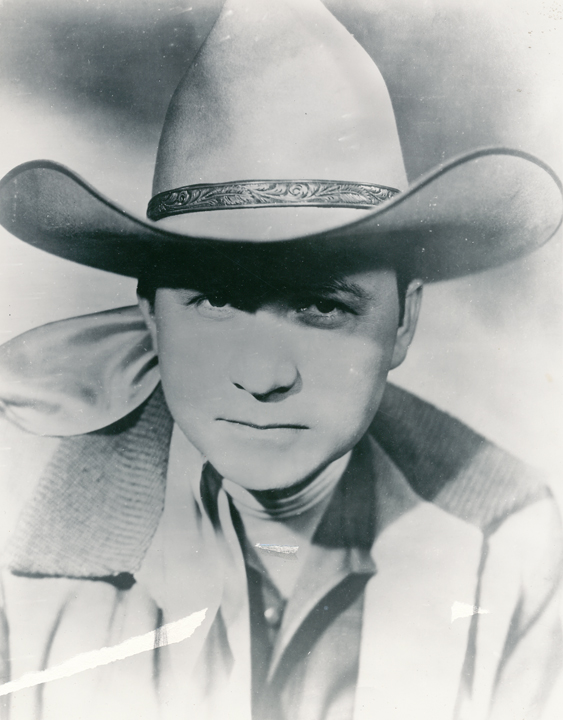 Undated promotional photo of Tex Ritter.
Undated promotional photo of Tex Ritter.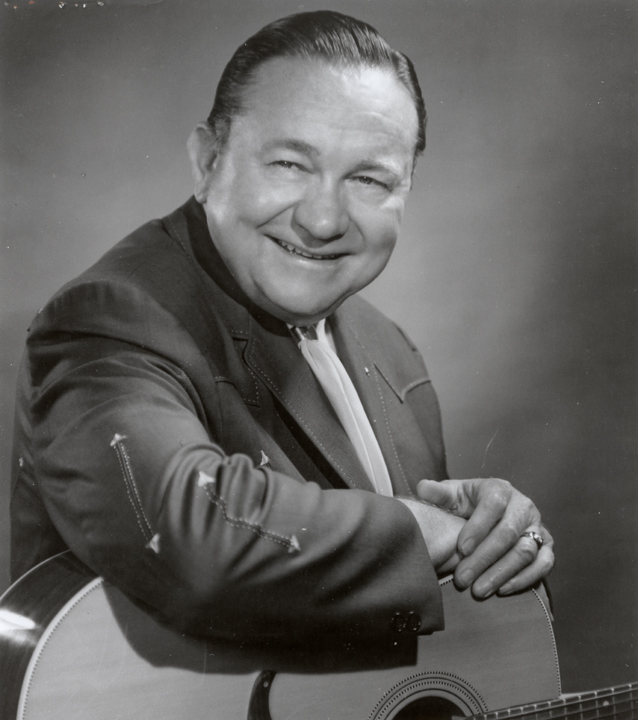 Folio of Tex Ritter songs, circa 1940s.
Folio of Tex Ritter songs, circa 1940s.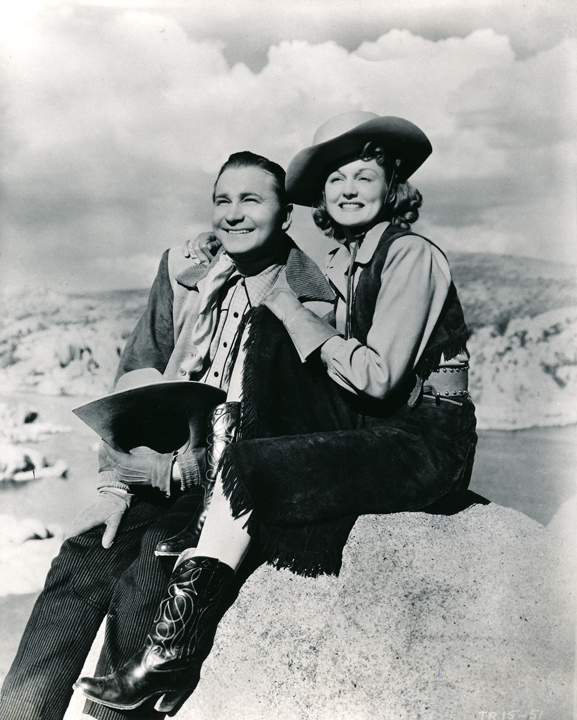 Tex Ritter on Western movie set, circa late 1930s to early 1940s, with Dorothy Fay (born Dorothy Fay Southworth). She later became his wife, Dorothy Fay Ritter.
Tex Ritter on Western movie set, circa late 1930s to early 1940s, with Dorothy Fay (born Dorothy Fay Southworth). She later became his wife, Dorothy Fay Ritter.